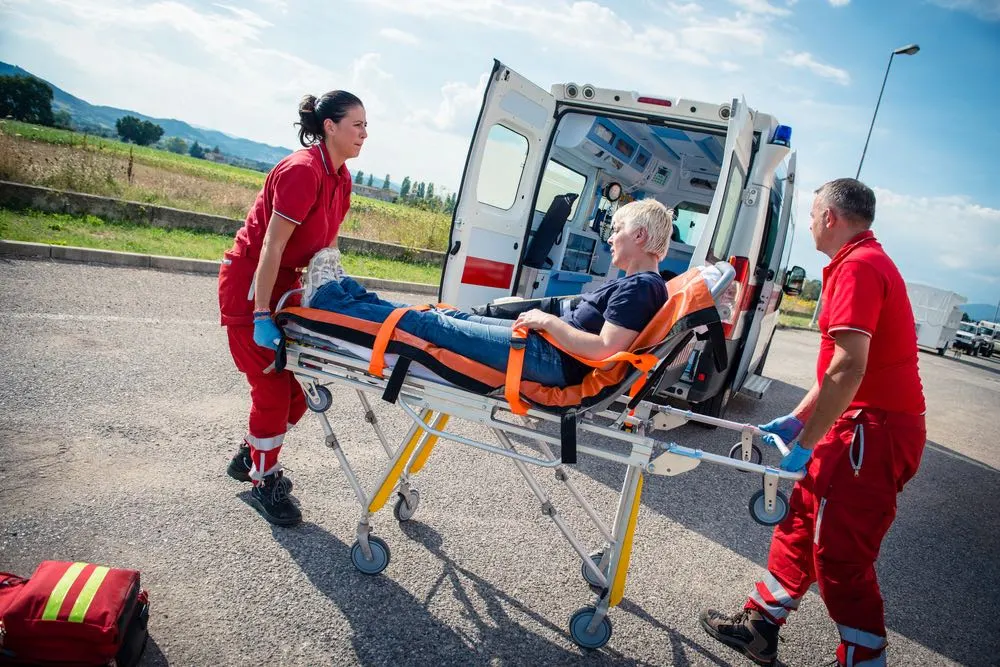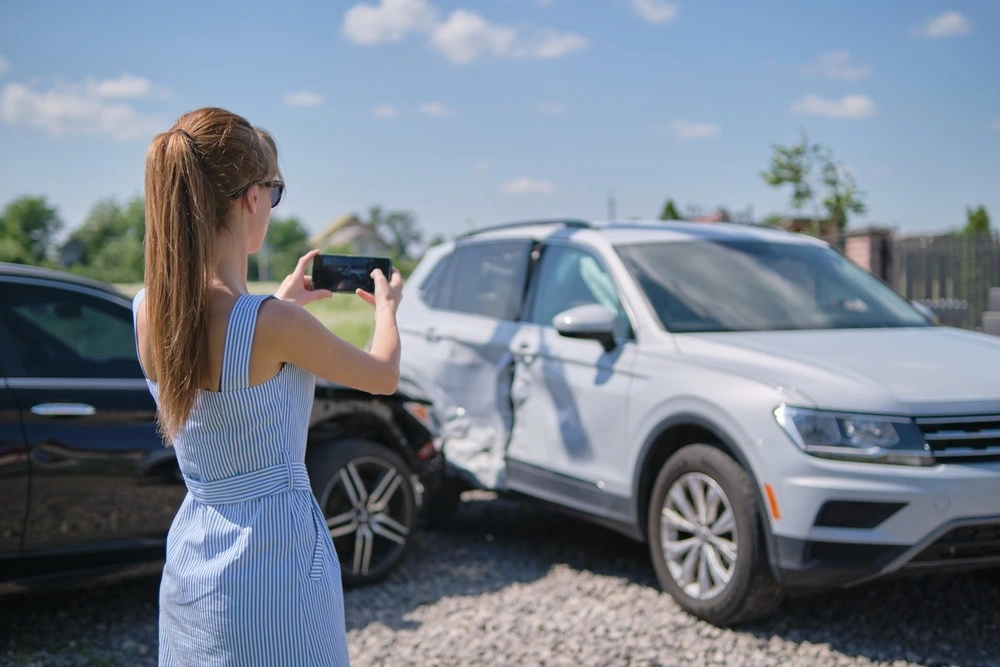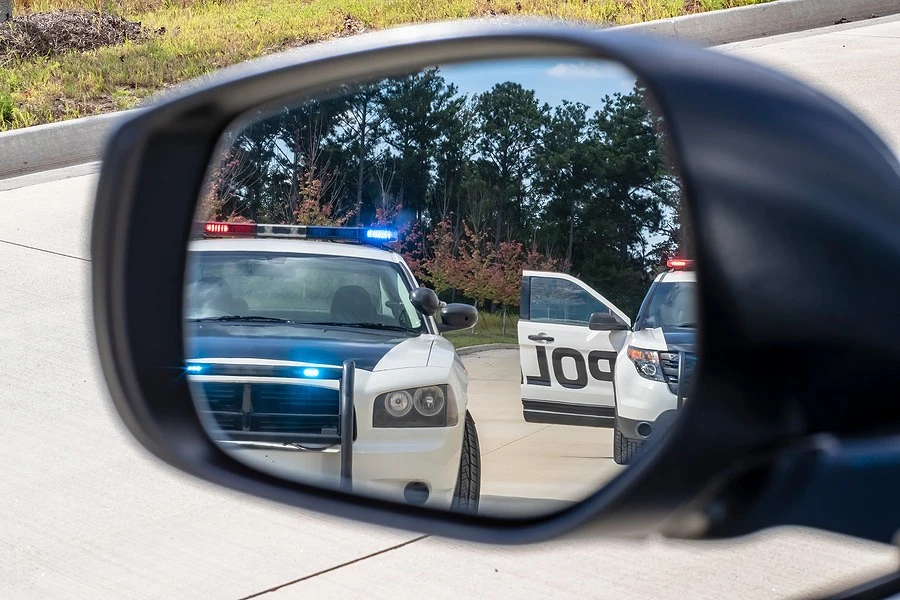Essential Steps: What to Do If You Are in a Car Accident
In the aftermath of a car accident, you may feel overwhelmed with what to do next. This article aims to simplify your next steps. It will guide you through what to do if you are in a car accident, including immediate actions for safety, legal requirements, interacting with insurance, and handling repairs. With succinct, actionable advice, you’ll have the knowledge you need to confidently navigate the post-accident process without unnecessary complication.
Key Takeaways
- Immediately after a car accident, prioritize assessing for injuries and ensuring the safety of everyone involved; remain at the scene, contact emergency services, and take measures to prevent further accidents.
- Exchange contact and insurance information with other drivers, document the accident scene thoroughly, and gather all necessary information for a strong insurance claim and potential legal action.
- Understand and navigate the insurance claim process by contacting your insurer promptly, understanding the repair cost and current market value of your vehicle, and considering legal representation, especially when dealing with the other party’s insurance.
Immediate Actions Post-Collision

Car accidents can be jarring experiences. But once the immediate shock subsides, taking certain protective measures is advisable. First, conduct a self-assessment for injuries. Remember, your safety and that of other drivers involved is paramount. Remaining at the scene is also imperative. Leaving may potentially lead to legal consequences for a hit and run, and your account is significant for the accident report.
Regardless of the severity of the accident, it’s advisable to contact 911 to report the incident and ensure the safety of all individuals involved. Not only does this ensure immediate medical care if needed, but it also initiates the accident report, which will be crucial in the claims process and for potential car repairs.
Assessing Injuries and Seeking Medical Assistance
In the aftermath of a car accident, it’s important to:
- Assess any injuries you or any passengers may have sustained.
- If you or someone else is injured, make sure to contact emergency services right away. If you’re unable to do so, ask a bystander for help.
- The importance of evaluating injuries and seeking medical help can’t be overstated. Injuries may not seem severe at first, but early detection of underlying issues like internal bleeding, fractures, or concussions can be lifesaving.
Even if you’re only experiencing mild discomfort, you should still request an ambulance to take you to the hospital. These sensations could be a sign of more serious injuries that require immediate medical attention. If you’re the only one capable of administering first aid, do so until emergency responders arrive. But remember, your first priority should always be the safety of all parties involved.
Ensuring Safety at the Accident Scene
After a car accident, securing the safety of the accident scene is of utmost importance. If your vehicle is in a precarious position following the collision, try to move it to a safe location if you can. If your vehicle is inoperable, turn on your hazard lights and try to move to a secure location at the side of the road.
Also, if visibility is poor due to conditions, such as during nighttime or in bad weather, use road flares to improve visibility and warn other motorists. These measures can prevent further accidents and ensure everyone’s safety until help arrives.

Information Exchange Protocol
After an accident, one of the most important steps is to exchange information with the other drivers involved. In Texas, you’re required by law to share your contact and insurance information. If you or the other driver doesn’t have immediate access to insurance information, you can request the vehicle registration information instead.
Specifically, you’ll need to share and collect the name, address, vehicle registration number, driver’s license number, and insurance information of all drivers involved, as well as the make, model, and license plate numbers of all vehicles involved. However, it’s important to note that you should not rely solely on the police to gather this information. And most importantly, avoid discussing fault or specific details about the accident with the other driver.
Documentation for Your Insurance Claim
Proper documentation significantly influences your insurance claim process. Gathering evidence at the scene immediately after the accident is a vital part of this process. This evidence, coupled with a police report, which contains essential information required for your claim, strengthens your case.
Bear in mind, insurance companies need substantial proof of losses when evaluating your compensation, hence the importance of maintaining accurate records. The more comprehensive your documentation, the stronger your claim will be, which could lead to more favorable compensation.
Document the Accident Scene
If the police aren’t present at the accident site, you should meticulously document the incident yourself. This includes recording pertinent details such as:
- the location
- date
- time
- weather conditions at the time of the accident
If there were any witnesses, try to get their contact information and ask them to provide a statement if they’re willing. All of this evidence will be extremely helpful when you’re filing your insurance claim.
Gathering Evidence at the Scene
Gathering evidence at the accident scene is a significant step towards building a robust insurance claim. Start by:
- Capturing photographs of the vehicle damage
- Taking pictures of any injuries you or other passengers sustained
- Documenting any traffic hazards or road obstructions that may have contributed to the accident.

Eyewitness statements can also be invaluable as they offer an impartial viewpoint of the accident, which can bolster your claim. Additionally, look for any security or traffic cameras that may have captured the accident as this video evidence can also substantiate your claim. If you’re having trouble gathering evidence or interviewing witnesses, don’t hesitate to ask someone else at the scene for help.
Police Report Acquisition
Obtaining a police report is another crucial step in the claims process. Your insurance company may require this report to process your claim. In Texas, you are required to report a car accident to the police if there are injuries or property damage exceeding $1,000. If the police are unable to attend the scene, it is important to submit a crash report, also known as the ‘CR-2 Blue form,’ to the Texas Department of Transportation within 10 days of the accident.
You can get a copy of the report through the Texas Department of Transportation’s online purchase system or from other agencies like Crash Dot or Lexis Nexis. Always make sure to provide complete and accurate information to ensure the proper filing of the police report.
Navigating the Insurance Claim Process
If you’re unfamiliar with the procedure, navigating the insurance claim process can be challenging. It’s recommended to contact your own insurance company first, regardless of who’s at fault. They can assist you in filing the claim with the at-fault driver’s insurer.
Once you file a claim, your insurance company will:
- Collect information about the accident
- Send an adjuster to assess the damage to your vehicle
- Determine who’s at fault
- Estimate the repair costs
- If your car is a total loss, offer compensation based on its actual cash value.
If the accident wasn’t your fault and you need to use your personal insurance, you can file a claim and cover the deductible. Your insurer will then work with the other party’s insurance to potentially reimburse your deductible.
It’s important to contact your insurer promptly, understand the repair costs for your vehicle, and determine its current market value to ensure you receive fair compensation.
Contacting Your Own Insurer
You should promptly get in touch with your insurance company to report the accident and initiate the claims process after a car accident. In Texas, you should do this within 24 hours of the collision, although there’s typically a 30-day window to contact your insurer and file a claim.
When reporting the collision to your insurance company, they’ll need specific information like:
- The other driver’s name, address, phone number, and license plate number
- The name of the other driver’s insurance company (this is the other driver’s insurance company), along with their phone number and policy number
- Detailed information about the location, time, and weather conditions at the time of the collision
- A description of the event
Providing this information will help your insurance company process your claim efficiently.
Remember, delaying communication with your insurance company can result in a delay in processing your claim, which could lead to a longer wait for compensation.
Understanding Repair Costs and Current Market Value
In order to ensure you receive fair compensation from your insurance company, it’s imperative to understand the repair costs and the current market value of your vehicle. In Texas, the repair costs for a car accident are determined by comparing the car’s value with the cost of repairs. If the repair costs equal or exceed the car’s value, it may be classified as a total loss.
Your insurance company will take into account the vehicle’s condition, mileage, and equipment package when estimating the repair costs and current market value of your rental car. If the estimated cost of repairing the damage equals or exceeds the fair market value of the car, the insurance company may offer a settlement for its replacement. They may also require you to obtain at least one estimate from a mechanic, garage, or car dealer for comparison.
The present market value of a car can be influenced by several factors such as:
- Age
- Mileage
- Condition
- Accident history
- Regular services
- Location
- Color
- Personalized features
You can determine the current market value of a vehicle after an accident through resources like Kelley Blue Book or other valuation tools.
Navigating the Aftermath of a Car Accident with Kenny Perez Law
Car accidents can be overwhelming, leaving you with not just physical injuries but also the stress of legal and insurance processes. At Kenny Perez Law, we understand the complexities and emotional toll of these situations. Our team of skilled lawyers is dedicated to guiding you through every step of the process, ensuring you receive the support and representation you need. Whether it’s dealing with insurance companies or fighting for your rights in court, we are here to help. Below are the key ways Kenny Perez Law can assist you if you find yourself in the aftermath of a car accident.
- Comprehensive Documentation of the Accident Scene: We ensure that every detail of the accident scene is meticulously documented, providing a solid foundation for your insurance claim.
- 24/7 Availability: Our dedicated team of lawyers is always ready to assist you, regardless of the time or day, including weekends and holidays.
- Expertise in Personal Injury Cases: Led by Kenny Perez, with his technical background and professionalism, we specialize in representing clients injured in car accidents.
- Strong Local Presence in Brownsville: As a trusted Brownsville personal injury lawyer, Kenny Perez has a proven track record in the community.
- Proven Success Record: With over 500 successful cases, our experience speaks for itself in delivering results for our clients.
- Client-Centered Approach: Our focus is on allowing you to recover peacefully while we tirelessly work to secure the full compensation you rightfully deserve.
- No-Win, No-Fee Assurance: We operate on a contingency basis, meaning you pay nothing unless we win your case.
- Significant Compensation Achieved for Clients: We have won millions for Texans, demonstrating our commitment to securing substantial settlements for our clients.
Trust Kenny Perez Law to provide the support, expertise, and dedication needed to navigate the aftermath of a car accident. Our goal is to ensure you receive the compensation and justice you deserve.
Legal Considerations After an Auto Accident

After a car accident, considering your legal options and grasping Texas law regarding car accidents is key to safeguarding your rights and interests. The selection of the appropriate legal team can significantly impact the outcome following an accident. Seeking the assistance of an accident attorney can be crucial in ensuring the attainment of maximum compensation for personal injury damages.
If you’re asked to provide a statement about the accident, refrain from accepting responsibility, expressing regret for the accident, or acknowledging any details about the occurrence before consulting with a knowledgeable car accident lawyer. Remember, compiling evidence after a car accident in Texas is crucial to establishing who’s responsible for causing the accident or determining the allocation of liability among the involved motorists.
Evaluating Legal Options
After a car accident, it’s important to explore your legal options. This typically involves seeking guidance from a legal professional to secure equitable compensation for any resulting damages and injuries.
Having a legal professional on your side can have numerous advantages. They can:
- Negotiate with insurance companies and the opposing party to secure a more favorable compensation
- Offer expertise and assistance in advocating for the rightful compensation
- Address matters pertaining to liability, injury evaluations, and equitable settlements
There are lawyers who specialize in car accidents in Texas, such as those from firms like 1800lionlaw.com, Texas Legal Group, and Florin|Roebig law firm.
These attorneys assess a case by leveraging their expertise and taking into account variables such as the expenses associated with pursuing the claim, as well as evidence related to lost wages and pain and suffering, in order to establish a robust basis for the lawsuit.
Texas Law and Car Accidents
Familiarizing yourself with Texas law regarding car accidents can help you understand your rights and responsibilities. This includes knowing the reporting requirements and potential legal consequences.
In Texas, you’re required to report a car accident to the police if there are injuries or property damage exceeding $1,000. If the police are unable to attend the scene, it is important to submit a crash report, also known as the ‘CR-2 Blue form,’ to the Texas Department of Transportation within 10 days of the accident.
Dealing with Other Parties' Insurers
Interacting with other parties’ insurers can be complex. It’s recommended to let your own insurance company or legal representative handle communications and negotiations.
Working with the insurers of the other party can present several challenges, including the process of filing a claim, communication with the insurance company, and managing insurance disputes. If the other driver is uninsured or does not have sufficient coverage to cover all of your expenses, your own auto insurance policy’s uninsured or underinsured motorist coverage may provide the necessary coverage.
To secure a fair settlement from the opposing party’s insurance company, be patient, collaborate closely with your legal representative, and ensure you get any settlement agreement in writing.
Managing Medical Expenses and Lost Income
After a car accident, medical expenses and lost income can pose substantial burdens. Keeping detailed records of all costs related to the accident and seeking compensation through your insurance claim or legal action can help manage these costs.
In order to properly document medical expenses for insurance or legal claims, it’s advised to:
- Keep copies of all medical bills and records
- Seek guidance from legal professionals
- File a complaint if necessary
- Maintain an itemized bill of medical expenses
In Texas, medical payments coverage can assist in covering medical expenses for the insured and their passengers in the event of injury, while liability insurance may cover medical expenses for others when the insured is at fault.
Initiating a claim with your Personal Injury Protection policy can cover initial medical expenses, and seeking assistance from car accident attorneys can explore additional avenues for addressing medical expenses.
Keeping Track of the Claims Process
Maintaining a record of the claims process is important for receiving the compensation you’re due. Maintaining a diary after a car accident can help document the details of the incident, which can be instrumental in safeguarding your innocence or bolstering a claim for seeking compensation for the damages incurred.
Record all pertinent details of the collision while they are still fresh in your memory. This includes specifics of the crash, any resultant injuries, and the impact of the accident on your routine activities.
When communicating with your insurance company, it’s important to share essential information about the accident thoughtfully and to refrain from disclosing any details that could potentially be used to your detriment during the claims procedure.
Recovery and Vehicle Repairs
Post a car accident, emphasis should be placed on recovery and vehicle repairs. The process of vehicle repair after an accident usually includes:
- Evaluating the damage
- Notifying the insurance company
- Selecting an auto body shop
- Obtaining a repair estimate
- Approving the repairs with the insurance company
- Finalizing the repairs and collecting the vehicle

The expense of vehicle repairs following a collision can be impacted by a range of factors such as:
- The vehicle’s make and model
- The extent of the damage
- The necessary replacement parts
- The labor costs involved
Working with reputable repair shops can ensure your vehicle is restored to its pre-accident condition, and following your insurance company’s guidance can ease the process.
Summary
Navigating the aftermath of a car accident can be overwhelming. But with the right knowledge and guidance, you can handle the situation effectively. From assessing injuries and ensuring safety at the accident scene to exchanging information, documenting the incident for your insurance claim, navigating the insurance claim process, considering legal options, dealing with other parties’ insurers, managing medical expenses and lost income, keeping track of the claims process, and focusing on recovery and vehicle repairs – every step is crucial. But remember, the most important thing is your safety and well-being. Everything else can be sorted out with time.
Frequently Asked Questions
What is the first thing you should do in a car accident?
If there are severe injuries, call 911 for medical attention. For minor accidents, move to the closest shoulder or a safe place to avoid obstructing traffic.
What are the follow up steps you should take after a collision?
After a collision, the follow-up steps include checking for injuries, getting to a safe place, calling 911, exchanging information, documenting the accident, and filing a claim with your insurer. Evaluate your car insurance rates as well.
What to do after an accident that is not your fault?
After an accident that is not your fault, gather as much information as possible, contact the police, seek medical help if needed, and understand your state’s laws and insurance coverage. Additionally, file a claim with the other driver’s insurance and let your insurance company know about the accident.
How should I document the accident for my insurance claim?
It’s crucial to gather evidence at the scene and acquire a police report immediately after the accident. Maintaining precise records is essential for providing evidence to the insurance company.
What legal options should I consider after a car accident?
Consider gaining a comprehensive understanding of local car accident laws in order to protect your rights. It’s advisable to consult with an accident attorney to ensure you receive maximum compensation for any personal injury damages.
